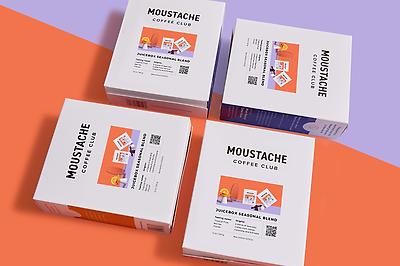Sustainability
Here at MCC - we’re all about bringing the most delicious, highest quality coffee to you at home. Being serious about coffee means being serious about the environment where coffee grows - which is why we’ve taken several steps to make our operation more sustainable.
First off - About The Packaging.
The way that we do business means we don’t really need to use traditional coffee packaging. Standard coffee bags were designed with a valve and foil lining to allow coffee to sit on a shelf at a grocery store for years in full sunlight without rupturing or damaging the coffee. But since we ship our coffee the day it's roasted and club members open our coffees 4 to 6 days later to brew, it doesn't make a lot of sense for us to use a bag designed for long-term shelf storage. We have the freedom to do things differently.
Reducing Waste & Fuel Consumption via Packaging
Traditional mixed construction coffee bags - usually some combination of foil, paper, and plastic - are impossible to recycle because of their layered construction.
Another part of the puzzle is fuel consumption. Any business taking part in high-volume shipping is responsible for fuel used by delivery trucks and planes, and the resulting greenhouse gases. We are shipping a large number of packages with each roast, so the overall weight and volume of our packaging comes into play. We wanted to find a way to minimize the size and weight of our packages, so that delivery vehicles can transport them as efficiently as possible while still fitting through your letter slot.

Our Approach
Our new packaging is 100% compostable from the box through the bag and valve and to the beans themselves. The goal is if this box was to be left out somewhere it would decompose and eventually return to the soil whence it came!
Before we had recyclable packaging but I suspect that many people either could not or did not recycle the bags.
This new approach should minimize the impact our business has on the environment and should maximize your enjoyment of your coffee - safe in the knowledge that we are doing the most that can be done to reduce any negative impacts we are having on this world we live on.